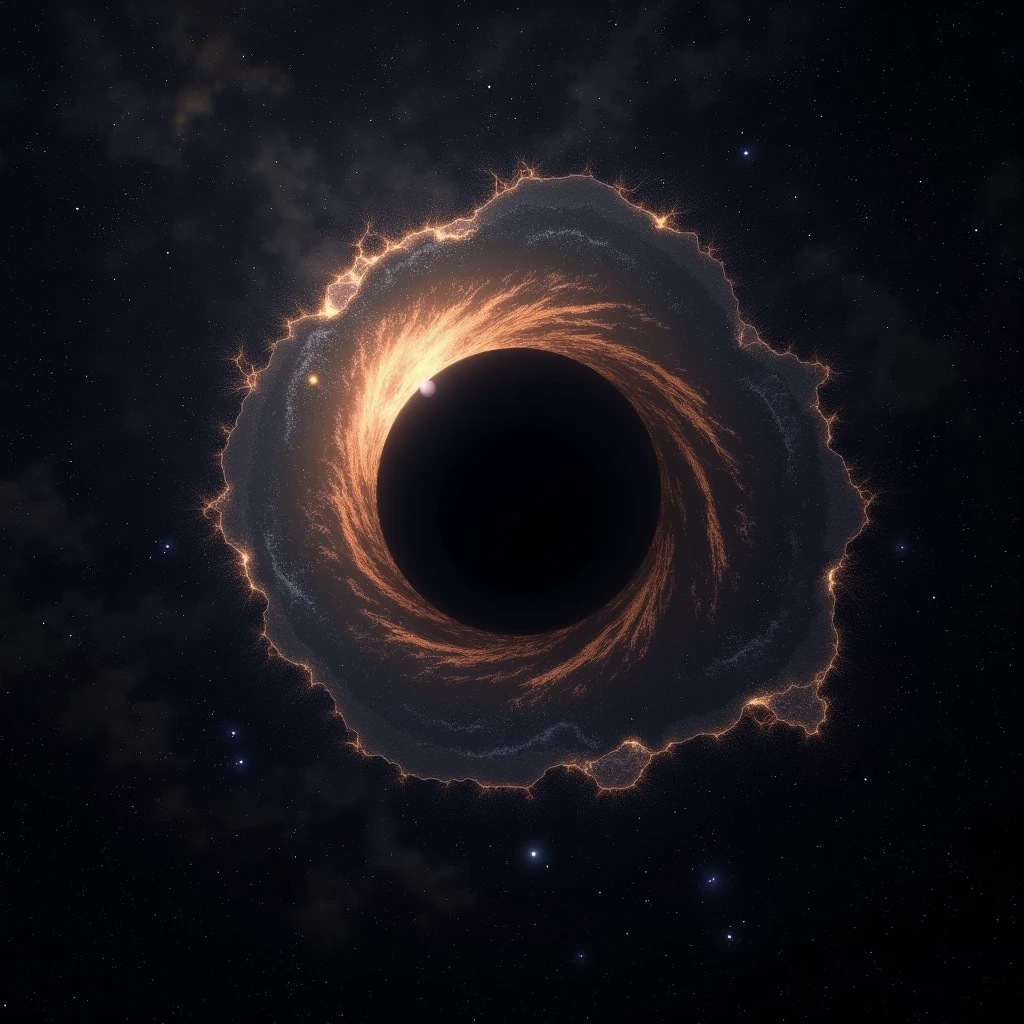The Slow Death of Black Holes: A Journey to the End of Time
In the vastness of the cosmos, black holes are among the most enigmatic entities, celestial objects so dense that nothing, not even light, can escape their gravitational pull. Yet, even these cosmic giants are not eternal. Their fate is sealed by a slow and inevitable process known as Hawking radiation.
The Violent Birth of Black Holes
Black holes emerge from cataclysmic events. When a massive star exhausts its nuclear fuel, it collapses under its own gravity, forming a black hole. Alternatively, the collision of dense objects like neutron stars can also give rise to these cosmic monsters. The origin of supermassive black holes, residing at the centers of galaxies, remains one of astrophysics' greatest mysteries, suggesting even more extreme and energetic processes.
Hawking Radiation: The Gradual Evaporation of Black Holes
Despite their voracious nature, black holes are not truly immortal. In 1974, physicist Stephen Hawking proposed that quantum effects lead to the emission of energy from a black hole, now known as Hawking radiation. This phenomenon causes black holes to lose mass and energy over time, leading to their slow but inevitable evaporation.
The Role of Quantum Fluctuations
Quantum mechanics teaches us that empty space is never truly empty. It is filled with pairs of particles and antiparticles that constantly pop in and out of existence. When these pairs form near the event horizon of a black hole, one particle may be captured while the other escapes, effectively stealing a tiny amount of energy from the black hole. This minuscule effect, occurring continuously, causes the black hole to gradually shrink.
The Final Fate: Exposed Singularities or Wormholes?
What happens to black holes as they near the end of their evaporation process is still a matter of debate. Some theories suggest that as a black hole loses mass, its event horizon shrinks until the central singularity is exposed, violating cosmic censorship, a principle proposed by Roger Penrose stating that singularities should always be hidden within event horizons. Other hypotheses suggest that black holes could transform into wormholes, acting as shortcuts through spacetime and possibly linking different parts of the universe.
A Future Without Black Holes
The lifespan of a black hole depends on its mass. The largest ones could take longer than the current age of the universe to fully evaporate. However, in a distant future, even these titanic objects will disappear, leaving behind an empty universe devoid of black holes, marking the end of a cosmic era.
The death of black holes is a captivating process that intertwines general relativity and quantum mechanics, two fundamental pillars of modern physics. As our understanding of these phenomena evolves, the evaporation of black holes remains one of the most intriguing frontiers of cosmology, offering deep insights into the nature of the universe and the ultimate fate of these mysterious objects.








Leave a Comment